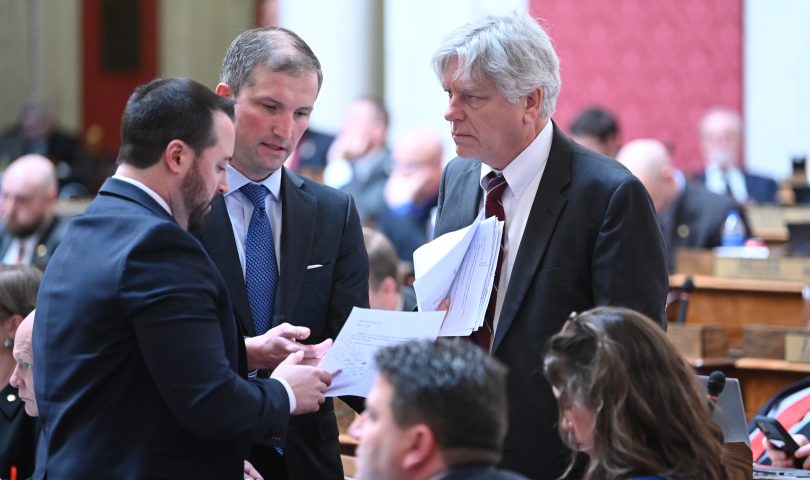MORGANTOWN – The House of Delegates pushed through a series of bills on Thursday as it gets ready for the 2023 legislative session to end on Saturday. Among them were a bill to address the Child Protective Service worker shortage and one loosening up certificate of need requirements for hospitals and medical practices.
SB 273 aims to allocate CPS workers based on county population and worker caseload, with a proviso that no county will have fewer CPS workers than it does now.
It allows the Bureau for Social Services to provide merit-based and locality pay. The Bureau will develop a special merit-based system to hire CPS, youth service and adult protective service workers, and necessary casework support personnel and managers. The system may include compensation adjustments, retention incentives, and hiring approval by the Bureau commissioner.
This special merit-based system would apply to new employees and to any existing employees who choose to opt in. The system will be exempt from the Division of Personnel and any DOP requirements that stifle locality pay.
The bill also includes a technology component: a redundancy system to compensate for any outages in its 24/7 phone system for receiving abuse and neglect reports.
It passed 91-0 and returns to the Senate for amendment concurrence.
SB 613 eliminates certain certificate of need requirements.
It expands the size of a hospital campus to include everything within 250 yards of a hospital’s main buildings and exempts everything in that space from CON requirements.
It exempts a private physician office with seven or more office practice locations from a CON to acquire and operate a fixed MRI scanner, with the qualification that at least 75% of the scans are for practice patients.
It exempts from CON anyone wishing to acquire, construct, develop or establish a birthing center.
It raises the expenditure minimum on the cost of acquisition, improvement or expansion of any facility, equipment, or services from $5 million to $100 million.
Delegate Mike Pushkin, D-Kanawha, again brought up an issue he’d raised in committee. “Who does it help and who does it hurt,” he asked.
Again without naming a person or facility, he referred indirectly to Thomas Memorial Hospital – a WVU Medicine hospital – seeking a CON to buy Pulmonary Associates of Charleston, which sits 176 yards from Thomas. Senate Majority Leader Tom Takubo, R-Kanawha, is co-founder and partner of Pulmonary Associates and is WVUM executive vice president of provider relations.
Pulmonary services currently require a CON but SB 613 would eliminate that with the new 250-yard requirement.
Charleston Area Medical Center, which offers pulmonary services, is challenging the CON for the purchase. CAMC and Mon Health System together form Vandalia Health.
Favoring the bill, Delegate Adam Burkhammer, R-Lewis, said the CON process can squelch providers’ ability to meet a community’s needs. “We’re not helping anybody but our people.”
And Delegate Heather Tully, R-Nicholas, talked about the long commutes to health care facilities from her hometown of Summersville. The bill will be good for providers in rural areas to be able to expand their services, she said.
It passed 75-20 with opposition from both sides of the aisle and returns to the Senate for amendment concurrence.
A bill to change annual vehicle inspections to every two years – SB 254 – stalled in House Finance at the beginning of February, but on Thursday delegates adopted a resolution to study the issue during interims. HCR 65 declares an intention to study eliminating inspections altogether.
Tweet David Beard @dbeardtdp Email dbeard@dominionpost.com




